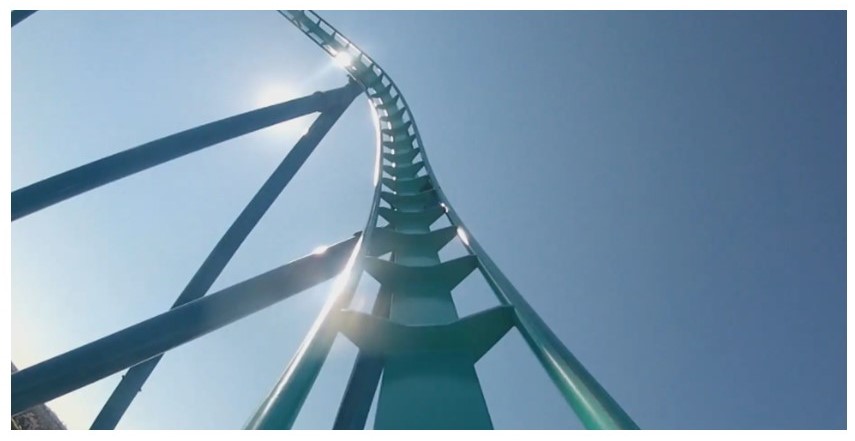Everything presented was very informative. I will be taking so much back to my community.
“Life feels like a roller coaster. When you get on, you don’t know where it’s going, and you don’t know how to get off.”
Over the years, in our Without Warning younger onset Alzheimer’s disease support group, caregivers of people with dementia have talked about a roller coaster to describe life with Alzheimer’s disease. Spouses have talked about it and young children, in our group, have also talked about a roller coaster to describe their lives with a parent with Alzheimer’s. It’s a fitting image which paints a vivid, accurate picture – the unpredictability, the turns, the unsettling feeling, the extreme highs and the extreme lows.
The year 2020 has brought so many worries for all of us - from health to financial, from e-learning to childcare, from loneliness to powerlessness, and from political to social unrest. And unfortunately, this list only names a few of those concerns brought on this year.
There is a heaviness. I see it in caregivers of people with dementia. I see it in co-workers, neighbors, friends, family and I see it in myself. Right now, along with the caregivers we support, we can all describe life as a roller coaster
As Dementia Leaders, how do we support the families of those living with dementia, when we are feeling immense stress ourselves? How do we stand with those families feeling such sadness, when we might feel the burden of our own sadness too?
To start, we must recognize the unusual times we all are facing. There have been times over the years when we have experienced a collective grief. A moment when it feels like the world stops. But most of us would agree that there hasn’t been a time when such grief is present in so many areas of our lives, and for such an extended time, until this past year.
As Dementia Leaders, now more than ever, we must practice what we preach. All the words of advice and comfort we share with caregivers, we need to be applying to ourselves.
Recognize your own stress – We spend much of our days listening to the stress of others and in the best of times that takes a toll. In this year, though, it can start to bring a person down. Take time to consider how you are doing.
Forgive yourself – I hear this phrase from people with dementia and their caregivers. It’s the recognition that they might not be interacting in a way they had before or in a way that they like, and they need to let themselves off the hook for that. Right now, in 2020, the same holds true for us as Dementia Leaders. We might feel like we aren’t living up to our normal work and/or life performance. We are juggling so much and being able to take in others stress is hard. Sometimes, just as families with dementia practice, we must adjust the bar of what we expect.
Share with others (but the right others) – Take time as a staff or with colleagues to talk about stress. They would probably appreciate it and it would be helpful to you too. Of course, we always need to be careful of sharing any identifiable information about our families living with dementia but as Dementia Leaders we need to encourage our staff and coworkers to be there for each other and that can be modeled by us.
Even though we are in a period of collective grief, we need to be cautious of sharing too much of our concerns with our families living with dementia. We don’t want to overburden them or have them feel the need to support us through our own grief.
Take breaks and find something that you enjoy – We need to find moments to take a break. This could be slow breathing, taking a walk, journaling, listening to music, meditating, visiting with friends or reading. This could be a moment as a staff to debrief or take a breath together. We all need those moments of grounding to re-energize for our stressful work.
Are you seeing unhealthy behaviors in yourself – Are you noticing an increase in drinking, eating, smoking, spending, or other addictive behaviors? Some increase can be normal during such stressful times, but we want to recognize and address destructive behavior in ourselves.
Seek help for yourself – Sometimes those of us who help others as a profession, aren’t always as good about asking for help for ourselves. We won’t be effective Dementia Leaders, if we don’t take care of ourselves. Reach out to wellness programs or counseling services when needed.
Maybe life has always been a roller coaster, filled with the unexpected and those highs and lows but 2020 has sure brought that feeling to the forefront. And, as Dementia Leaders, maybe we have always needed to consider our own health before we can support others but again 2020 has made that so painfully clear.
Hang on. It’s going to take all of us watching out for ourselves and each other to move on to the next twist and turn.

